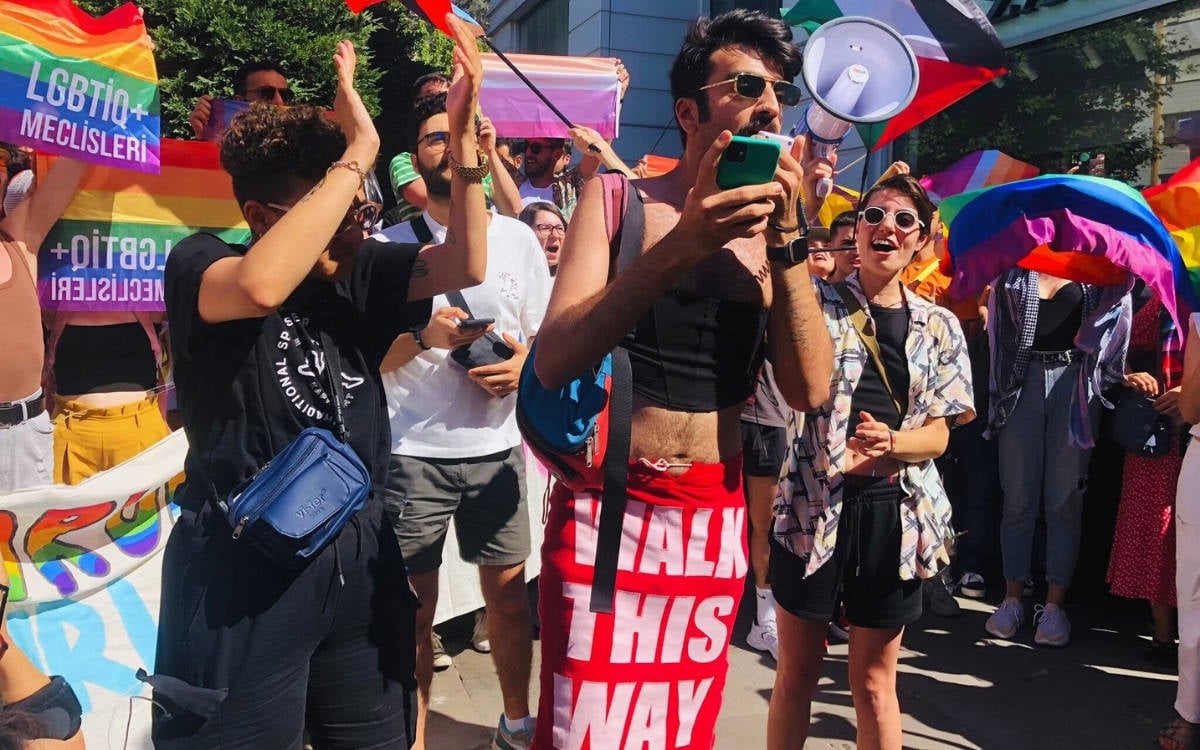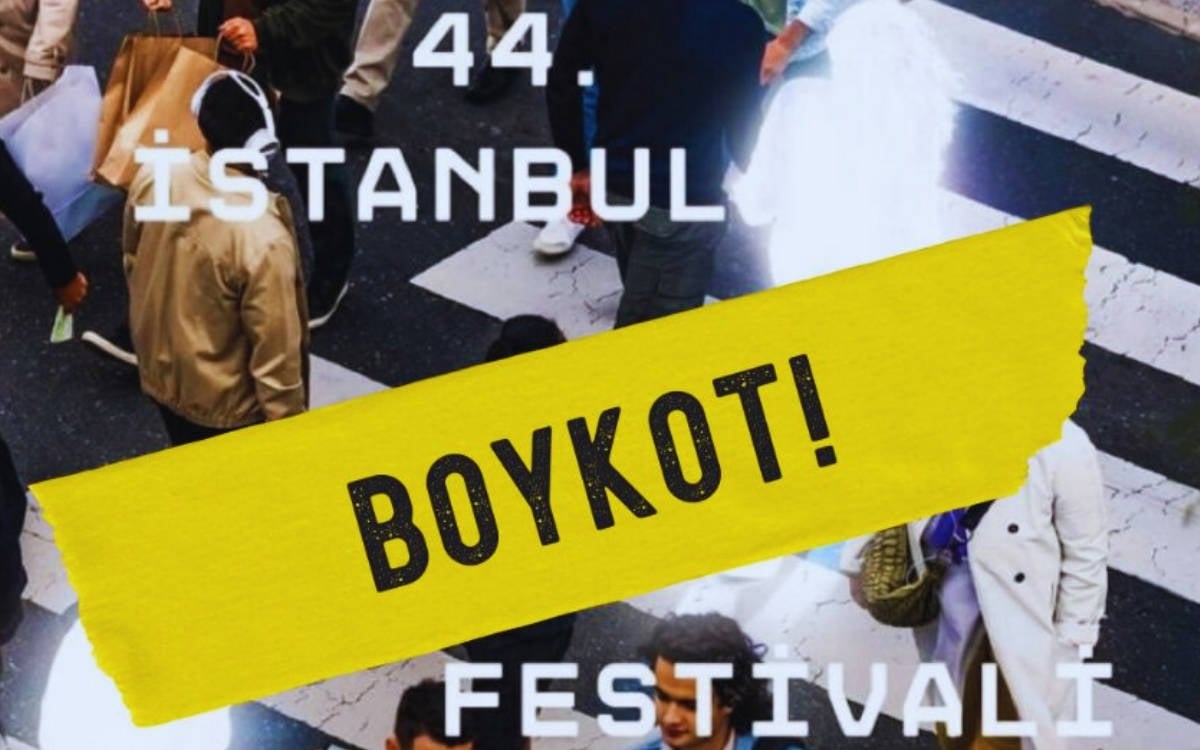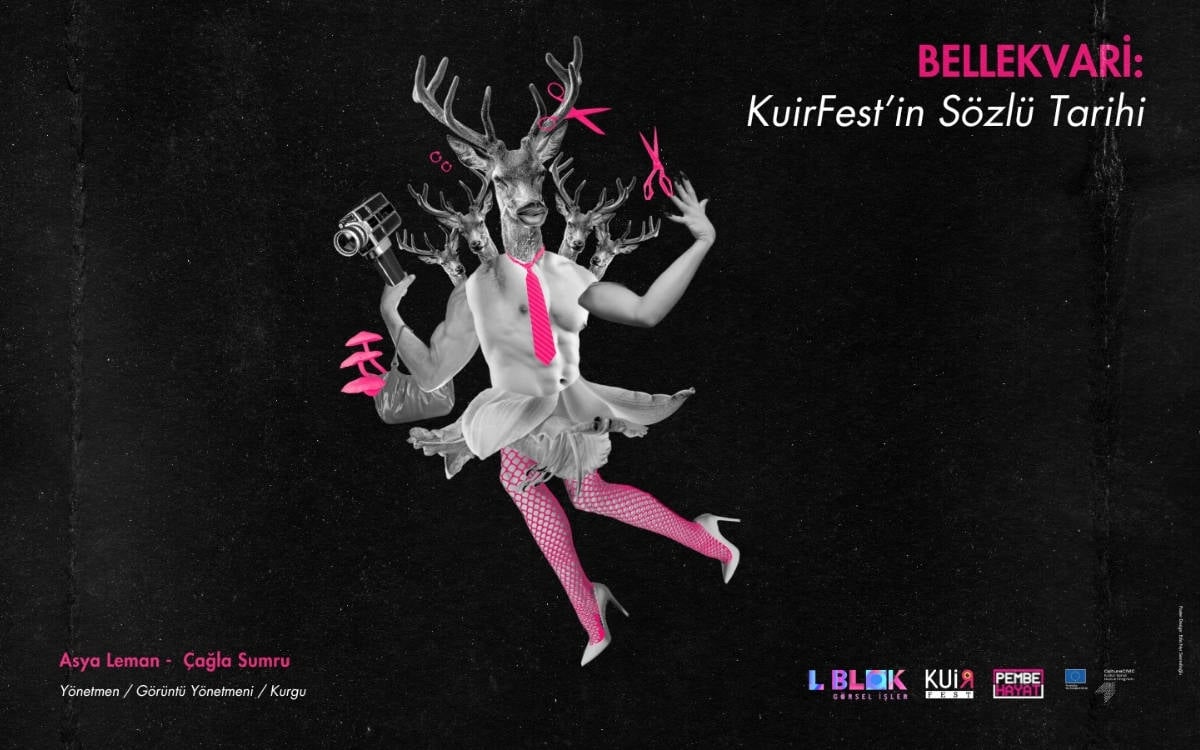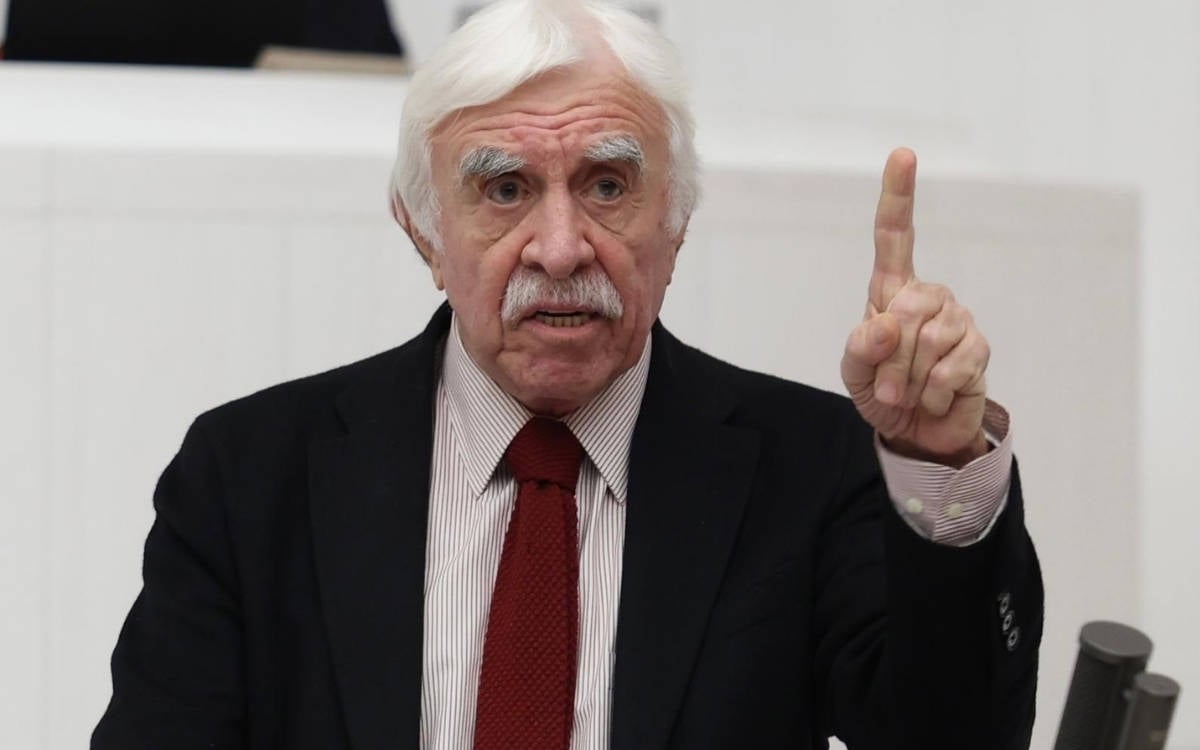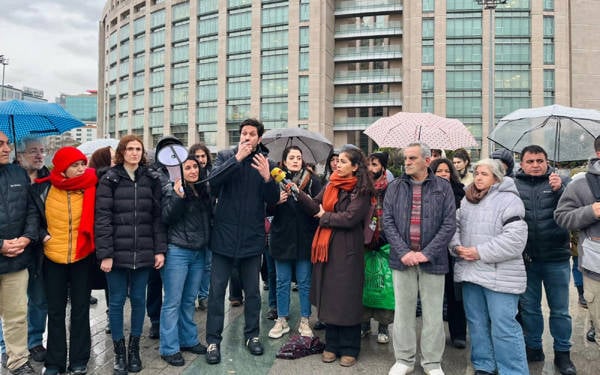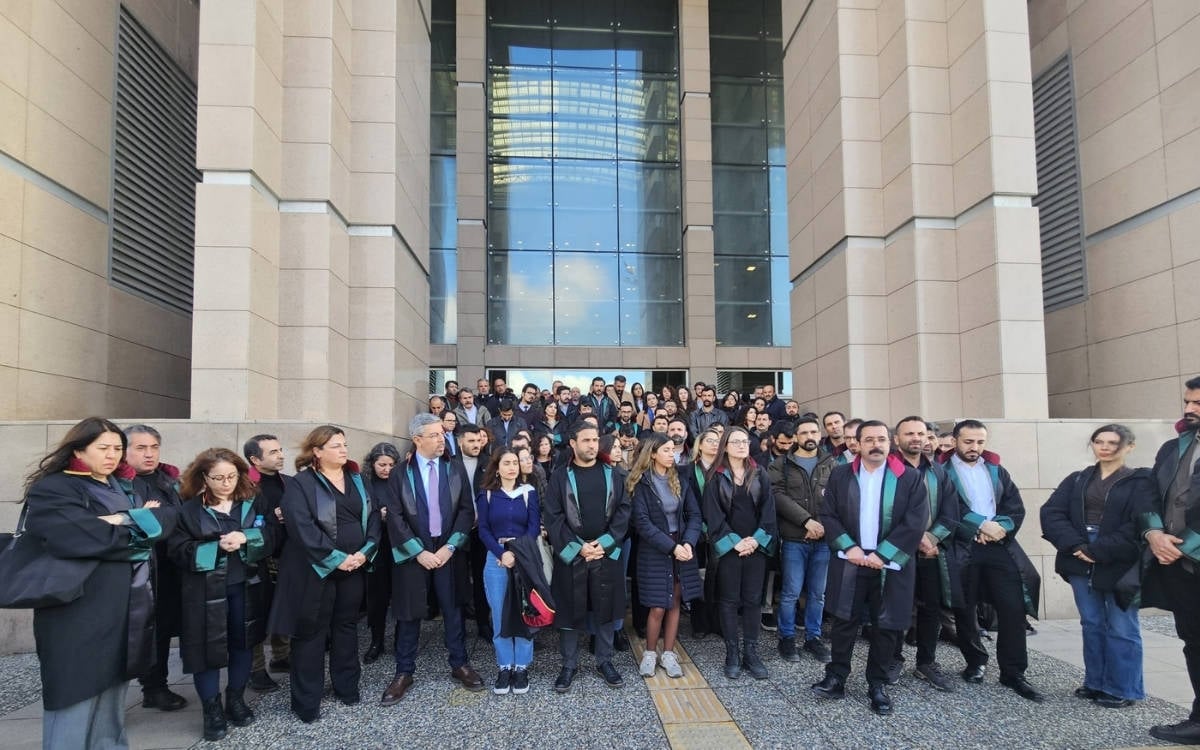The governor of İstanbul’s Kadıköy district, banned the screening of the film "Queer," which was set to be the opening film at the MUBI Fest İstanbul 2024, prompting the organizers to cancel the festival altogether rather than adhering to censorship.
Yesterday’s ban was the latest in a series of government restrictions targeting LGBTQI+ films and culture in Turkey, with Kadıköy, a vibrant cultural center and a hub for LGBTI+ community, being a frequent target. The governor’s office notified MUBI Turkey of the ban just hours before the festival was to begin. The decision was based on claims that the film contained "provocative content that could endanger public peace."
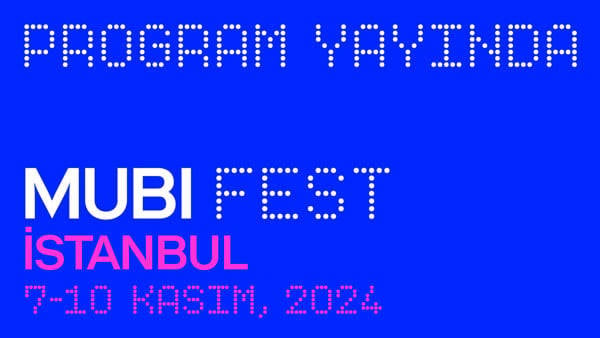
MUBI Fest İstanbul canceled after last-minute ban on opening film ‘Queer’
The film, set in 1950s Mexico City, tells the story of American William Lee, portrayed by Daniel Craig, alongside Drew Starkey and Lesley Manville. Lee, who spends most of his days in isolation and interacts with only a few people, meets Eugene Allerton, a former soldier newly arrived in the city. This encounter offers Lee his first chance at forging a deep bond with someone.
MUBI Turkey condemned the ban as an interference restricting art and freedom of expression, and in response, announced it was canceling the festival to uphold the "principled stance" expected by its audience. The news of the ban was covered by outlets such as The Guardian, Variety, Indiewire, and The Washington Post, sparking reactions from filmmakers and LGBTI+s, who expressed solidarity with MUBI Turkey in opposing the ban.
Previously, in August 2024, MUBI Turkey faced a maximum administrative fine from RTÜK due to a screening of Gaspar Noé's Climax (2018), deemed contrary to the principles of "public morality" and the protection of family values.
‘No to censorship and LGBTI+phobia’
Pembe Hayat Solidarity Association, Turkey’s first self-organized association for trans people, which also organizes the country’s first queer film festival, Kuirfest, issued a statement on the ban: "We congratulate MUBI, which has shown it stands for 'all together or none,' leaving no one behind."
The 10th İstanbul Trans Pride Committee also responded, stating, "No to censorship and LGBTI+phobia. We resist you."
Meanwhile, both the film and the platform, as well as Kadıköy Municipality, were publicly targeted by pro-government media outlets and figures such as Milat newspaper's Ankara correspondent Özlem Doğan.
Although the ban on MUBI, an international platform, has drawn worldwide attention, this is not the first such action taken by the Kadıköy District Governor’s Office. In fact, since 2019, the governor’s office has banned LGBTI+s from even holding tea gatherings, dancing, and organizing sports tournaments in the district.
Muhittin Pamuk was appointed as district governor of Kadıköy in 2022, succeeding Mustafa Özarslan, who held the position from 2017 to 2022.
The extensive list of offenses
Here are some of the bans imposed by the district governor's office on events it deemed as potential “propaganda for organizations,” threats to “social peace and public morals,” or that it justified by invoking “public sensitivities”:
The third annual Queer Olympix sports competition, planned for August 23-25, 2019, began on August 23 on Heybeliada. However, events scheduled for August 24 at Kadıköy Kalamış Park were banned by the district governor's office. The official rationale for the ban cited "potential provocations due to public sensitivities towards groups and individuals attending the event," and invoked Article 17 of Law 2911, claiming it was a precautionary measure to “maintain public order, prevent crime, and protect public health and morals.”
The Social Policy, Gender Identity and Sexual Orientation Studies Association (SPoD) and Queer Olympix noted that the ban contradicted applicable laws, the Constitution, European Court of Human Rights rulings, and international treaties. They emphasized that the administration's rationale was “arbitrary and baseless,” and filed for a judicial annulment of the ban.
On May 14, 2020, İstanbul's 5th Administrative Court ruled that the ban on Queer Olympix was unlawful, affirming that the prohibition had been based on “groundless provocation” claims with no substantiated basis.
Bans on the films ‘Paris Is Burning’ and ‘Pride’
The screening of the documentary Paris Is Burning (1990), planned by the İstanbul University Equality Club for November 16, 2022 in Kadıköy, was also banned by the Kadıköy District Governor's Office. The screening, intended as part of the “November 20 Trans Day of Remembrance for Victims of Hate Crimes,” was reportedly associated with “terrorist propaganda” by the governor's office.
On June 7, 2023, the screening of Pride (2014), a film about solidarity between miners and LGBTI+s, organized by the Science, Aesthetics, Culture, and Art Research Foundation (BEKSAV) at Bahar Bahçe, was similarly banned by the district governor’s office. The rationale given was that the film allegedly “contravened public morals.”
As the screening time approached, police encircled the foundation building. At least eight people, including attendees and BEKSAV administrators, were detained by police. Although those detained were released the same day, they faced legal charges for “violating Law 2911 on Meetings and Demonstrations.”
Additionally, during Pride Week events on June 15, 2023, the district governor’s office banned the Tea & Talk gathering organized by Lambdaistanbul LGBTI+ Solidarity Association, which had been held for ten consecutive years. The reason cited for banning the English-speaking practice event was that it allegedly “posed a risk to public safety.”
It's also important to recall that the governor’s office frequently issues bans to venue operators during İstanbul Pride Week events. These legally groundless prohibitions often lead to police threatening venue owners with detention if they allow the events to proceed.
A bold move
While readers responded to the widespread international coverage of the censorship imposed on MUBI Turkey with remarks like “we’ve been disgraced”—and if that’s an accurate term—the reality is that this “disgrace” has been ongoing for quite some time. Yet, when the affected parties are LGBTI+s, such censorship typically goes overlooked.
In Turkey, censorship of Kurdish films has persisted for years, both on online platforms and at film festivals, and for about the past five years, LGBTI+ films have faced systematic censorship as well. However, this issue is generally only highlighted by outlets and organizations focused on LGBTI+ rights and freedom of expression. In this sense, the censorship targeting MUBI Turkey's festival is a significant development in making the freedom of expression and association issues faced by LGBTI+s more visible, even if the discussion includes pejorative responses.
Whether the platform will pursue legal action against the ban remains to be seen, but canceling the festival over the censorship of one film represents a bold step that goes beyond the usual hesitant and muted reactions to bans targeting LGBTI+s.
Let’s hope that this principled stance spreads throughout the cultural and arts community and social opposition at large. (TY/VK)







